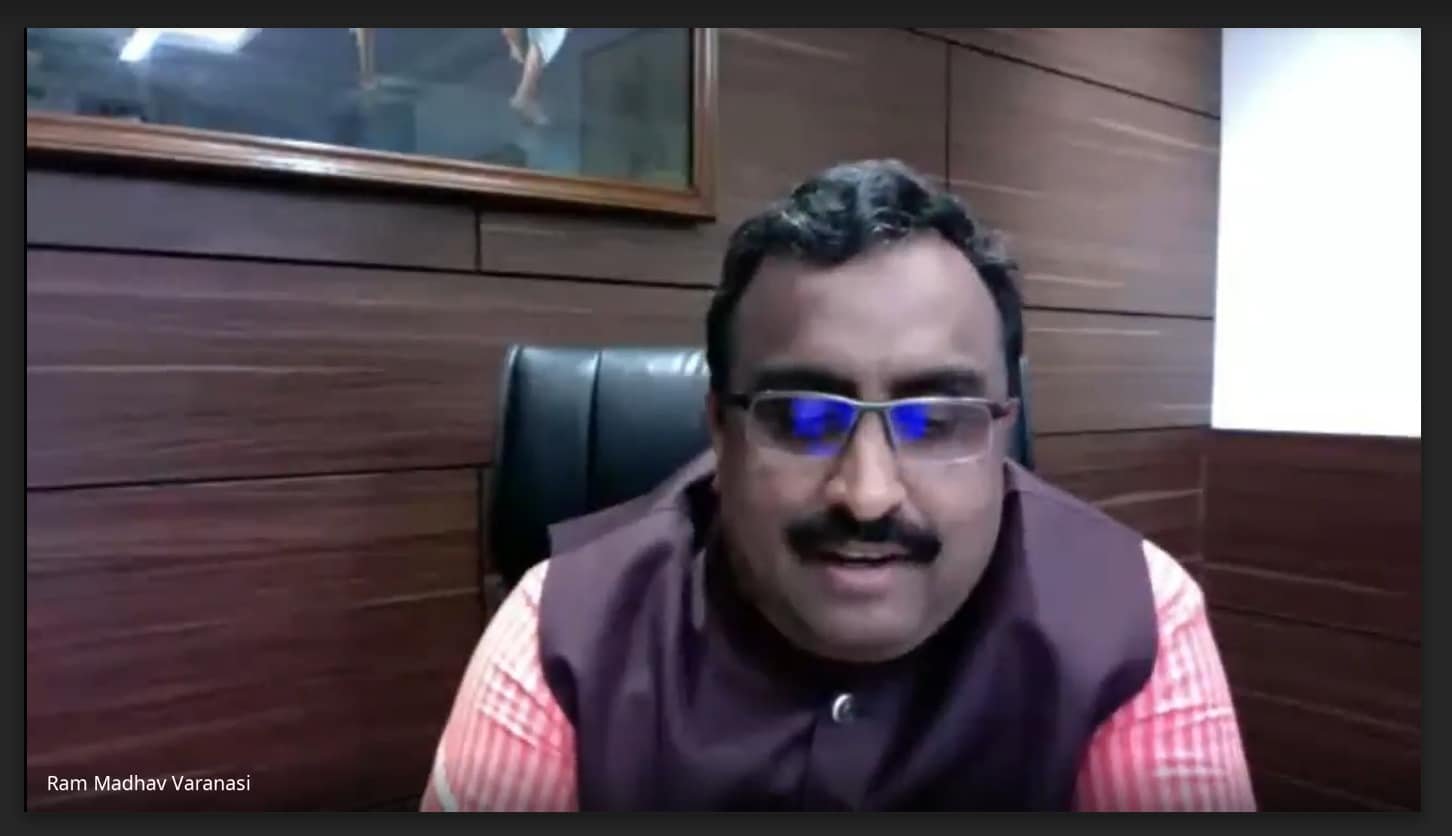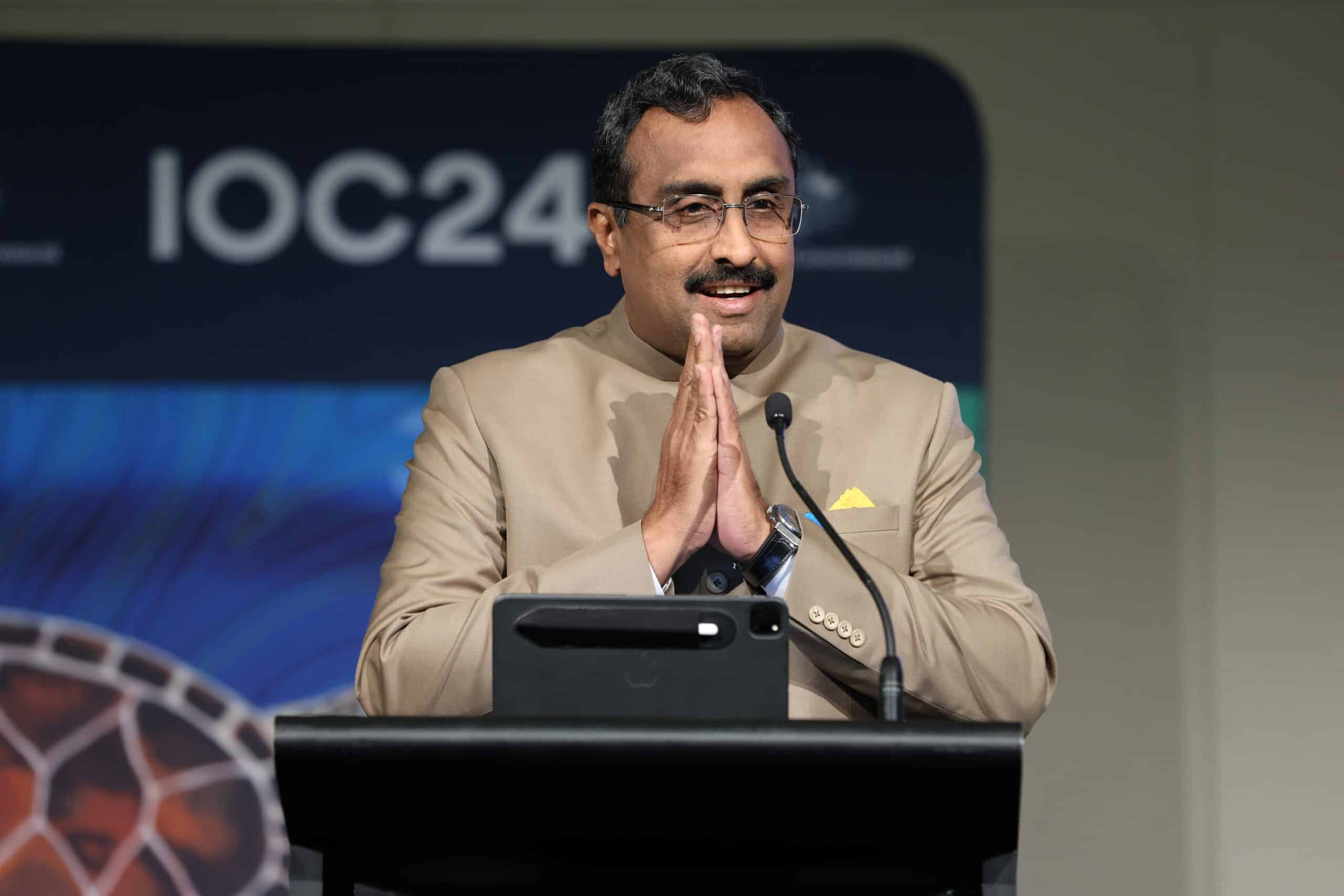
|
Getting your Trinity Audio player ready...
|
Text of Shri Ram Madhav’s Inaugural address at the Video Conference on “Cultural Diplomacy amidst COVID-19 Pandemic” organised but the Swami Vivekananda Cultural Center, Embassy of India, Seoul, South Korea to mark the World Culture Day on May 21, 2020
Amb Dinesh Patnaik, DG, ICCR, Amb Sripriya Ranganathan, Dr Sonu Trivedi, friends from Korea and India.
Greetings to all on the World Culture Day from India, the land of Vedas, Ramayana, Maha Bharata, Bhagvad Gita, Bhagvan Buddha, Mahavira and Guru Nanak Devji.
India is also the land of a vibrant and colourful culture that the world relishes through its song, dance, drama and literature.
The world is a mosaic of many cultures. Each culture has its beauty and glory. each culture has a message for the mankind.
This cultural diversity enhances the richness of our global wisdom. This should be preserved, not hated and destroyed.
I would like to congratulate Swami Vivekananda Cultural Centre of the Embassy of India in Seoul and its Director and my good friend Dr. Sonu Trivedi for organising this event on Cultural Diplomacy Amidst COVID-19.
Cultural diplomacy is a relatively new concept for the world.It is generally understood in terms of the tools deployed by different countries.
For example, in India’s case, it is its cuisine to dance to art to literature, that forms an integral part of its tools of cultural diplomacy.
Of late, the Indian diaspora, with its vibrant diversity in language and customs, has also become a tool of cultural diplomacy for India.
Our festivals like Diwali and Holi are celebrated across the world. Even governments take interest in celebrating them.
However, we must understand that cultural diplomacy is not just about the tools alone, it is about the content.
Cultures manifest the essence of the value systems of respective nations.
The eastern hemisphere, of which India and Korea are important countries, has fabulously rich value system that manifests through its cultural forms.
At times like the present pandemic crisis, it is that message which becomes more important than the tools.
Indian culture has always stood for ideals like Vasudhaiva Kutumbakam – world as one family; and Vishwa Kalyan – glory to entire mankind.
We see divinity everywhere – omnipresent. In fact, Swami Vivekananda, after whom this centre is named, had summed up the essence of Indian value system in three statements: ‘Daridra Devo Bhava’, ‘Murkh Devo Bhava’ and ‘Agyan Devo Bhava’ – Let the poor, deceased and the ignorant be your god today – the man-god’.
In times of Corona, our cultures should teach the world about cooperation, not closing down; helping each other, not hating; supporting weak nations and peoples, not letting them suffer.
India’s offer to the world in the form of Yoga and meditation in the past is a dimension of its cultural diplomacy for global well-being.
India today wishes to offer Ayurveda, the Indian medical system to the Covid-stricken world. True to its cultural values, Ayurveda is not about disease management; instead it is about life management. It teaches the way happiness can be achieved through balanced management of body, mind, intellectual and soul at one level and self, society, universe and the eternal at another level.
India has cherished liberal democratic values all through its Dharmic-system of life. Indian history, literature and art are replete with its commitment to these Dharmic liberal democratic principles.
COVID-19 has seen the rise of authoritarian tendencies in some parts of the world. Through cultural diplomacy, it is important to keep people aware of the value and significance of democratic liberalism.
Let me conclude by saying that like all other challenges, this pandemic challenge too will pass off. But the post-Covid era is going to witness a different world order.
Countries are turning inwards today. Interconnectedness in physical sense is reducing. Social distancing is leading to emotional disintegration of families and societies.
In such a new world order, cultural values have greater role to play in keeping peoples connected to noble and humane values and ideals.
It is the call of the hour that we all work towards that goal as cultural ambassadors.
I thank Ambassador of India, and my friend Sripriya Ranganathan and her colleagues including Dr Sonu for giving me this opportunity.
Namaskar




Sir,
For the first time reading an article by you. Sir, learned a lot. Thank you Sir.
Hi sir
We are not able to understand the English language please share telugu version sir